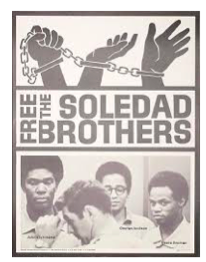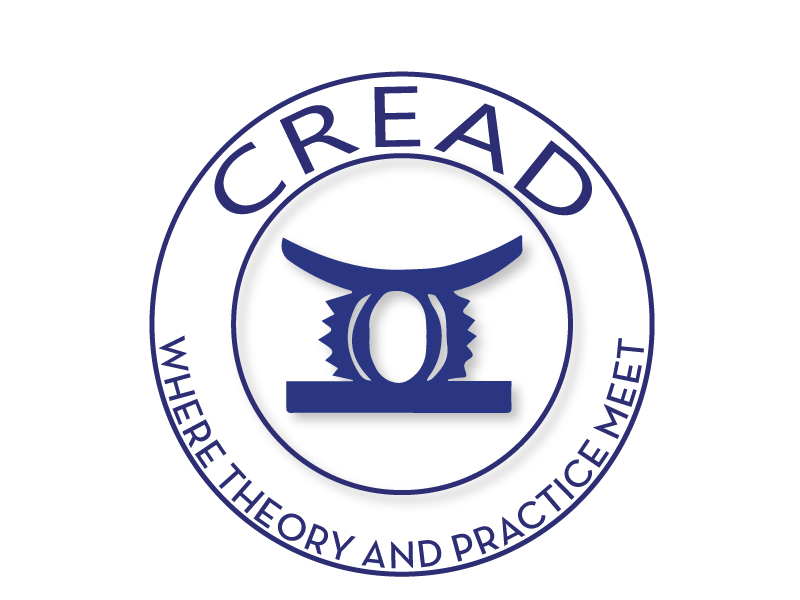When we talk about education for liberation, a huge component of said education is knowing history, our history, our history of greatness and of struggle and of all the ways we’ve rebelled, resisted and triumphed, righteously.
As a history teacher in America, for just over a decade, I thought myself to be very knowledgeable. However, I have learned more about history, politics and citizenship in the last 3 years than I even knew or taught in those 10. I have found out that most of what I thought I knew of important people, places and events were lies at worse, and devoid of various perspectives at best.
History by another name
I often tell people that my consciousness for teaching history from a decolonized perspective was sparked in my first year of teaching at Boys and Girl High School. After a great start to the school year, I began teaching “slavery” and a male student of mine, who had participated heavily in my class up to that point, mumbled under his breath, “I don’t want to learn this shit. We were born slaves. We’re weren’t shit. We ain’t never been shit and we’re never going to be shit.”
His words hit me like a ton of bricks. I was stunned. I remember heat rising to my face and water filling my eyes. I remember students averting my glare as I searched around the room to see if they agreed. I was frozen. I didn’t know what to do. I had planned a “great” lesson for the beginning of slavery.
I was embarrassed. Because I knew he was articulating a deep truth, based on the way that history had been taught for all of his life.
I don’t remember what I did next in the class, only what I did next at the end of the day. I searched textbooks for a depiction of slavery that would instill pride in him. (Just writing that sentence feels stupid. But that’s what I did.) I went to the textbook looking for guidance on how to make slavery, engaging and show all the ways enslaved Africans resisted. What I found was that the textbook had allotted exactly 1.5 days for me to teach slavery and the curriculum I was given outlined one 45 minute class to teach it. I quickly realized the Blackness or Africanness equaled to about 4 days out of the entire semester and nothing I had talked about the ways enslaved Africans resisted.
It was at that point that I realized I was a history teacher who knew no history of my people and I became dedicated to changing that.
When we talk and teach about the experience of African Americans, or the term I love, Africans in America, the story is short and sweet. We came here as slaves, were given our freedom after fighting in the Civil War, earned rights because Rosa Parks sat on a bus and Martin Luther King had a dream and after gaining our “civil rights” we became crackheads and criminals but we finally made it to the mountain top when we elected our first Black President.
What a triumph.
Our experience in America is all about what happened to us and our long, long, long, struggle to be seen as human.
Nothing in our history books teach us about the ways we rebelled, resisted and showed active resilience (it’s filled with passive resistance,) only the ways good wypipo did that for us. (Side eye)
A Prison-Made Holiday
This time last summer, I was preparing a presentation for a group of educators. It was my second time in front of this audience and we were doing a crash course on Anti-Bias culture. As I was researching, I stumbled on the Black Lives Matter platform. They released it on August 1st, 2016. I remember losing myself in the depth of information they had released, awed by their thoroughness and audacity. I was totally enamored with the site and wondered, why did they release it on August 1st, who would pay attention while on summer break? And was their a significance to the date?
I can’t remember if BLM explicitly acknowledged Black August or if the internet’s intuition guided me there. All I know is that I discovered Diasporic gold that day.

Black August began in California’s San Quentin in August 1979. The men who founded the holiday wished “to commemorate the rich, tragic history of prison protest over the past decade as well as the number of historically significant events in the Black freedom struggle that have taken place in the month of August.”
“August,” as Mumia Abu-Jamal noted, “is a month of meaning … of repression and radical resistance, of injustice and divine justice, of repression and righteous rebellion, of individual and collective efforts to free the slaves and break the chains that bind us.”
Writing this, I remember the physical reaction of my body, my heart beat quickened and my entire body felt like it was on fire. I was trying to make sense of all the information I was finding, that I had never heard of before in my 36 years on earth and definitely not during my decade long tenure as a history teacher or my many years of university schooling.
Oh wait, I know you might be thinking, ummmm, why is this important? Some prisoners; criminals, created a made up holiday and this blew your mind?

Nope. The above list of events blew my mind.
What blew my mind was how the month of August signified righteous rebellion.
 What blew my mind was that this connection was made by a group of men sitting in San Quentin prison with righteousness in their hearts and history on their minds. They formed a study group and engaged in active resistance to the unfair and inhumane treatment they were receiving while in prison.
What blew my mind was that this connection was made by a group of men sitting in San Quentin prison with righteousness in their hearts and history on their minds. They formed a study group and engaged in active resistance to the unfair and inhumane treatment they were receiving while in prison.
“In a kind of secular activist Ramadan, Black August participants refused food and water before sundown, did not use the prison canteen, eschewed drugs and boastful behavior, boycotted radio and television, and engaged in rigorous physical exercise and political study. Through Black August, prisoners sought to demonstrate the personal power they maintained despite incarceration.”
“We figured that the people we wanted to remember wouldn’t be remembered during Black history month, so we started Black August,” cofounder Shuuja Graham.
What blew my mind was that Black History Month in February is a celebration of what Africans in America have accomplished.
However, Black August is the celebration of the ways Africans in America have righteously rebelled and resisted against White Supremacy and the inferiority complex America insists on saddling us with. Black August is the time to celebrate what America wants to hide from us, our self determination and our personal and collective power.
Because once we know who we are, where we come from, and who we come from, then we can successfully determine where we will go and how we will get there.
That’s what blew my mind.
Personal Connection
Black August, started in August of 1979. That is the month and year I was born. For as long as I’ve been alive, men and women in and out of our prison system have been fighting against injustice and making sure we honor those events and people, who the larger society would like to erase.
I’ve often said if I was alive during the 60s, I’d likely be dead or in prison at least or exiled like Assata Shakur, at best. But I realize that in lots of ways this ia a romanticized idea of myself and that decade. Neither grounded in reality.
I’m living in my 60s era right now, in the era of Black Lives both mattering and not, in the midst of the exponential growth of the private prison industrial complex determined to imprison People of Color at disproportionate rates and the and the strengthening of the school to prison pipeline. All the while being led by a racist, sexist, misogynistic, uneducated, classist for President who is determined to destroy us and the world.
Forget idolizing the 60s and thinking about what I would have done and who I would have become. Black August 2017 is the time to reassert that I must shore up my rebellious and resistant nature. My aim is to be more like the very much alive and very much not exiled Angela Davis, Kathleen Cleaver and Maxine Waters and reclaim my time.

Side Bar: Listen Auntie Maxine gives me all the life I ever need. I’m spending the rest of my life aiming to her level of idgaf-ness.
They are all in their 70’s while Black August and I still have more than half of our lives left to learn, grow, teach and to actualize what it means to be brave, what it means to be righteous, what it means to be free and what it means to empower others.
Oh, and this is not just about me. This is also about YOU. This is also your Black August. You are also connected to this resistance and rebellion movement. If your eyes are reading this post, you are being reminded that your job as an educator is to unleash your radical potential in order to empower everyone around you; your students, their parents, your colleagues, friends and family to resist and rebel in the name of righteousness.
And we here at CREAD will be helping you. Throughout the month of August we will be informing you of the significant people, places and events of Black August while empowering you with ways to actualize the spirit of Black August in your everyday life.
Black August is exactly what your heart and mind needs in order to be prepared to educate for liberation for the upcoming school year.
Doing the righteous work of education for liberation often times feels impossible. There is too much to do, institutions have too much power, there’s too much fear and red tape. There’s lack of clarity and resistance to change. But I contend that we as a people have overcome times much harder than this. And though we are inspired by those times, we need more than inspiration, we need empowerment. We need the tools and the keys to unlock our mental, psychological and emotional chains.
And we got you on that!
Major Key Alert: Read Teach Freedom. Learn for yourself that Africans in America have a very rich tradition of education for liberation. We already know what we have to do. We just need the will, the community and the supports to do it.

Start here and take this journey through the Blackest August of your life!
In solidarity.


Giiiiiiirl I am using this for tomorrow’s session with my ECE teachers. thank you thank you thank you!
On Mon, Jul 31, 2017 at 8:09 AM, Culturally Responsive Educators of the African Diaspora wrote:
> kbrann posted: “When we talk about education for liberation a huge > component of said education is knowing history, our history, our history of > greatness and of struggle and of all the ways we’ve rebelled, resisted and > triumphed, righteously. As a history teacher in Amer” >
LikeLike
You’re welcome. You’re welcome. You’re Welcome. Lol
LikeLike